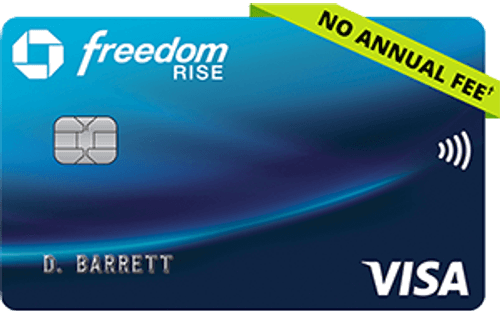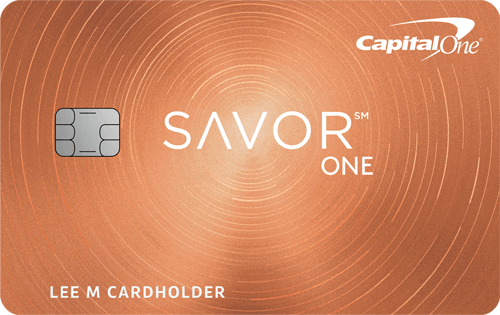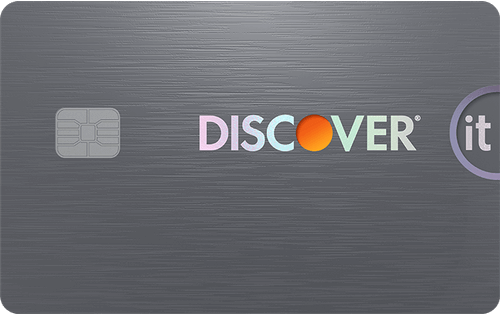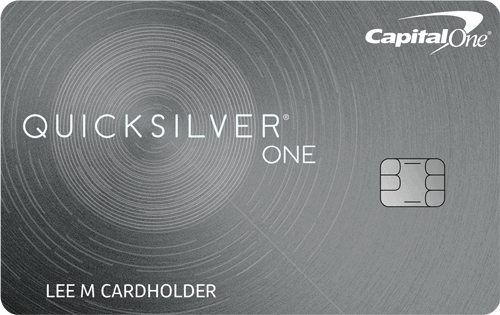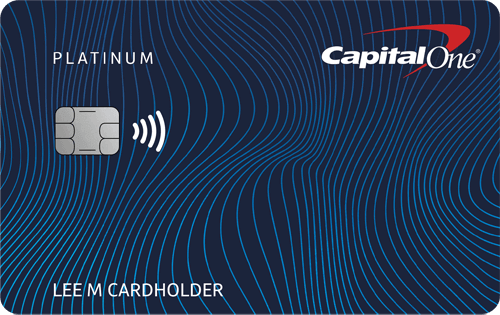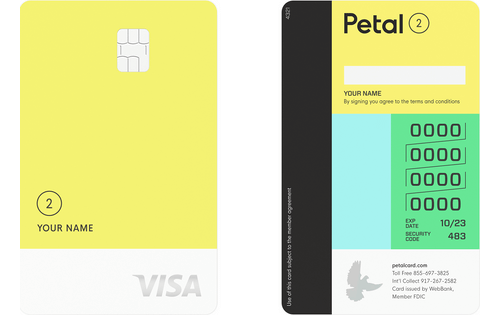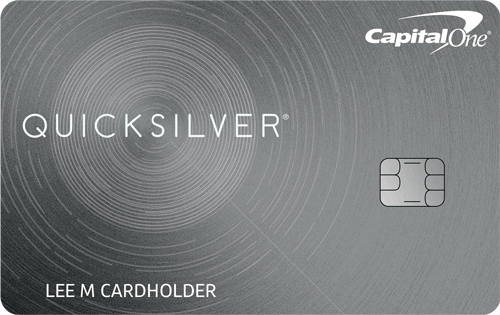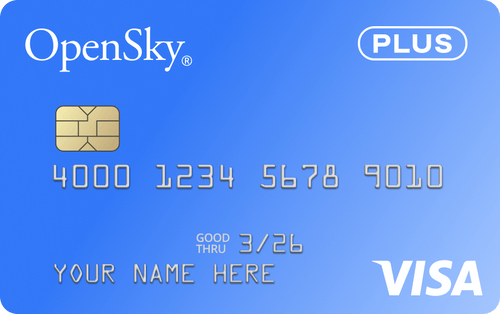- Our picks
- How we picked the best credit cards for beginners
- Sources
- Guide to Credit Cards for Beginners
- About the author
- User questions & answers
- Expert opinions
Our Picks for the Best Credit Cards for Beginners
Newcomers have plenty of starter credit card options available to them, especially students. For your convenience, we’ll recap the best of the bunch below. WalletHub’s editors identified these offers as being the best first time credit cards for different types of people after comparing more than 1,500 credit card offers.
Best Beginner Credit Cards Compared
| Card | Best For | Annual Fee |
| Chase Freedom Rise℠ | Overall | $0 |
| Petal® 2 Visa® Credit Card | Bonus rewards | $0 |
| OpenSky® Plus Secured Visa® Credit Card | Easy to Get Approved | $0 |
| Discover it® Secured Credit Card | Secured Rewards | $0 |
| Capital One SavorOne Student Cash Rewards Credit Card (see Rates & Fees) | Students | $0 |
Now that you’re familiar with WalletHub’s editors’ picks for the best beginner credit cards, it’s important to note that finding the best credit card for your needs is only half the battle. You also need to use it responsibly if you want that starter card to be a stepping stone to financial success, not a source of mistakes that could haunt your credit history for years.
Negative records about things like missed payments, default and bankruptcy will remain on your credit reports for 7 to 10 years. There’s no way around that, either. So even though you’re using a credit card for beginners, you need to act like a veteran. Above all else, that means always paying your monthly bill on time and only spending what you can afford to pay back. And since those things are way easier said than done, some specific pointers are in order.
Below, we’ll lay out our best first-time credit card tips, covering both how to find the right card and how to use it right once you have it.
Methodology for Selecting the Best Credit Cards for Beginners
To identify the best credit cards for beginners, WalletHub’s editors regularly compare more than 1,500 credit card offers based on their rewards, fees, interest rates, special features, and other WalletHub Rating components. This enables us to maintain an up-to-date list of the best starter credit cards of all types, from cards for students with no credit to the best rewards cards for newcomers. Some cards come from WalletHub partners, but advertiser status does not affect WalletHub’s editors’ picks in any way. Selections are made based on cardholder savings.
How Two-Year Cost Is Calculated
Two-year cost is used to approximate the monetary value of cards for better comparison and is calculated by combining annual and monthly membership fees over two years, adding any one-time fees or other fees (like balance transfer fees), adding any interest costs, and subtracting rewards. Negative amounts indicate savings. When fees or other terms are presented as a range, we use the midpoint for scoring purposes.
Rewards bonuses and credits have been taken into account for two-year cost calculations. However, bonuses applicable to only a very small portion of cardholders are not considered. For example, credits and bonuses awarded for spending or redeeming rewards through a company portal with non-co-branded cards have not been taken into account. Similarly, bonuses and credits related to spending with specific merchants using a non-co-branded card have not been taken into account (for example, if Card A offers credits with DoorDash, this feature would not be factored into calculations because it is hard to assess how many cardholders would use the benefit or exactly how much value they'd get from it).
Cardholder Spending Profiles
Given that different users have different goals and are likely to use their credit cards differently, we identified spending profiles that are representative of different users’ financial priorities and behaviors. For each cardholder type, we have assumed a specific amount of monthly spending by purchase type (e.g., groceries, gas, etc.), as well as an average balance, balance transfer amount, amount spent on large purchases and average monthly payment. Spending assumptions are based on Bureau of Labor Statistics data.
Sources
WalletHub actively maintains a database of 1,500+ credit card offers, from which we select the best starter credit cards for different applicants as well as derive market-wide takeaways and trends. The underlying data is compiled from credit card company websites or provided directly by the credit card issuers. We also leverage data from the Bureau of Labor Statistics to develop cardholder profiles, used to estimate cards’ potential savings.
Guide to Credit Cards for Beginners
When Should You Get a Starter Credit Card?
You should get a starter credit card as soon as possible because managing a credit card account responsibly is the easiest way to build credit. You can get your own credit card account when you turn 18 years old, as long as you have enough income to afford the monthly bill payments. Before then, you could get a credit card as an authorized user on a parent’s account in order to begin the credit-building process early.
Another reason to get a credit card is to save money. The right card could save you hundreds of dollars per year, even if you have limited credit experience.
Learn more about when to get a starter credit card.
Pros and Cons of Credit Cards for Beginners
Getting a credit card is one of the easiest ways to build credit as a beginner. If you’re concerned about overspending and having to pay expensive interest charges, you don’t even need to make purchases with your credit card to benefit. You’ll get credit for paying the bill on time every month if you simply maintain a $0 balance.
A credit card can also help you save money if you decide to use it to make purchases. Even starter credit cards often offer rewards, so you can earn at least 1% back on everything you buy. As long as you pay your bill in full by the monthly due dates, you can avoid interest charges, too.
Learn more about the pros and cons of credit cards.
What to Look for in a Starter Credit Card
The most important things to look for in a starter credit card are approval requirements that you can satisfy comfortably and a low annual fee – preferably $0. Those two features will allow you to begin building credit as soon as possible without costing yourself any money.
Rewards are the next thing to look for, providing a good tie-breaker between starter cards with no annual fee. You should look for the highest possible earning rates for the purchases you plan to make most often, or an above-average rate on all purchases. For example, you could get 1.25% - 1.5% cash back on everything.
We recommend paying your bill in full every month when you have a starter credit card, which makes cards’ interest rates unimportant. If you need months to pay off a big-ticket purchase, however, a low interest rate should be a priority.
With this shopping list in mind, you’re likely to end up with an unsecured credit card for beginners, a student credit card or a secured credit card. Any of them can help you build credit and save money.
Learn more about what to look for with your first credit card.
How to Get Approved for a Starter Credit Card
Getting approved for a starter credit card begins with your card selection. As a beginner to credit who’s never taken out a loan or opened a credit card account, you’re unlikely to qualify for a credit card designed for people with good or excellent credit. So, stay in your lane when comparing offers, and stick to cards designed for people with limited or even bad credit.
Once you select a card, you should review its terms and conditions to make sure there’s nothing in there that makes you ineligible. The basic requirements for most cards are the same, though, as you can see below.
What You Need to Qualify for a Starter Credit Card
- SSN. An ITIN or passport may work instead.
- U.S. street address. A P.O. Box address won’t work.
- Enough income to afford monthly payments. If you’re 18-20 years old, this has to be independent income. If you’re at least 21 years old, you can include shared household income.
- 18+ years of age. The minimum age to get your own credit card account is 18. Younger people can be authorized users, though.
Best Beginner Credit Card Tips
Getting a credit card as a beginner can be a daunting task. From choosing a card to apply for, to filling out the application and hopefully getting approved, to using the card to benefit rather than drain your finances, there’s a lot to deal with.
People often assume there’s some secret to getting the most out of a credit card, but you really just need commonsense, basic organizational skills, and a helpful resource like WalletHub by your side. On that note, you can check out more tips from WalletHub experts below.
1. When in doubt, get the cheapest secured card
2. Start with a student credit card if you have an EDU email address
3. Get a boost from a store card
4. Don’t worry about looks
5. Non-students should consider three types of cards
6. Remember that travel rewards aren’t for everyone
7. Try to compare apples to apples
8. Always pay your bill on time
1. When in doubt, get the cheapest secured card
This is a good type of card for beginners because it allows you to start building credit as soon as possible. And it lets you do so in a relatively low-risk environment, where you can practice responsible habits without the temptation to overspend.
Opting for a secured card will also help you avoid unnecessary credit-score damage. Too many applications (3+) within too short of a timeframe (three months) will drag down your score, as repeated hard inquiries signal a worrisome desperation for added spending power.
Besides, secured credit cards are indistinguishable from unsecured cards. Physically, there’s no difference in their appearance. Same thing when it comes to credit building. They look exactly the same on your credit report. And information about both types of cards gets reported to the credit bureaus on a monthly basis.
2. Start with a student credit card if you have an EDU email address
Banks offer college students more attractive terms because they prize their above-average earning potential and the potential that exists for them to become lifelong customers. Students can expect to get a card that does not charge an annual fee yet offers either a rewards earning rate of least 1% or a 0% introductory APR.
3. Get a boost from a store card
If you want to boost your credit building and rewards earning capabilities, you may also want to get a store card associated with one of your favorite retailers, as they are typically free to use.
4. Don’t worry about looks
Long ago, you learned not to judge a book by its cover, and it’s the same story with credit cards. What your card looks like isn’t important. Hardly anyone is going to see it, and even fewer will care.
What matters is getting a good deal and saving money. That’s why the coolest credit cards are the ones with the best value proposition.
5. Non-students should consider three types of cards
A secured card is your best bet for approval, as you are essentially guaranteed to get one if you can place a security deposit of at least $200. That deposit will also serve as your credit line, thereby preventing overspending.
Store credit cards can only be used at the particular retail chain they are affiliated with. For example, the Target REDcard can only be used to make purchases at Target. The appeal of store cards is that they tend to have fairly lenient approval standards as well as great rewards. The stores want more people spending more money at their locations, after all.
Unsecured credit cards for limited credit, on the other hand, may offer the most spending power…and charge the highest fees.
6. Remember that travel rewards aren’t for everyone
Airline miles and hotel points are flashy, and they may even draw your eye when shopping for your first credit card. What most first time credit card users will eventually learn, however, is that cash back rewards are far more reliable and transparent. It’s far easier to understand their value, and cash cannot be devalued. You don’t need to be a frequent traveler to maximize your earnings either.
7. Try to compare apples to apples
One reason comparing credit cards is so difficult is that they all list account information differently. But if you put things in dollar terms, it will be much easier to find the offer that’s right for you.
In other words, convert points and miles into cash back percentages by determining how many points/miles you’ll need for a certain gift card, flight, hotel room, etc. You can also compare rewards cards with different annual fees based on the net amount each would save you, considering both what you’d earn and what you’d have to spend. You could even factor in interest rates if you plan on carrying a balance from month to month.
8. Always pay your bill on time
Payment history accounts for more than a third of 35% of your overall credit score. And because paying your account’s monthly minimum is all that’s required to make sure this score component stays positive, there’s really no excuse for tripping up in this regard.
The best way to take forgetfulness out of the equation is to set up automatic monthly payments from a bank account. You can do so through your online account or by calling customer service. And you’ll be able to choose between paying the monthly minimum, your full balance or a custom amount.
At the end of the day, the best type of first time credit card is easy to identify: It’s an offer catered to people with limited or no credit that does not charge any fixed fees. After all, your top priorities at this stage in your credit career should be to get approved and start building credit as quickly and inexpensively as possible.
Finding the single best credit card to start with is a bit trickier. And while we’ve done the legwork for you, you may prefer to do the search yourself. In that case, following the tips above will definitely lead you in the right direction.
